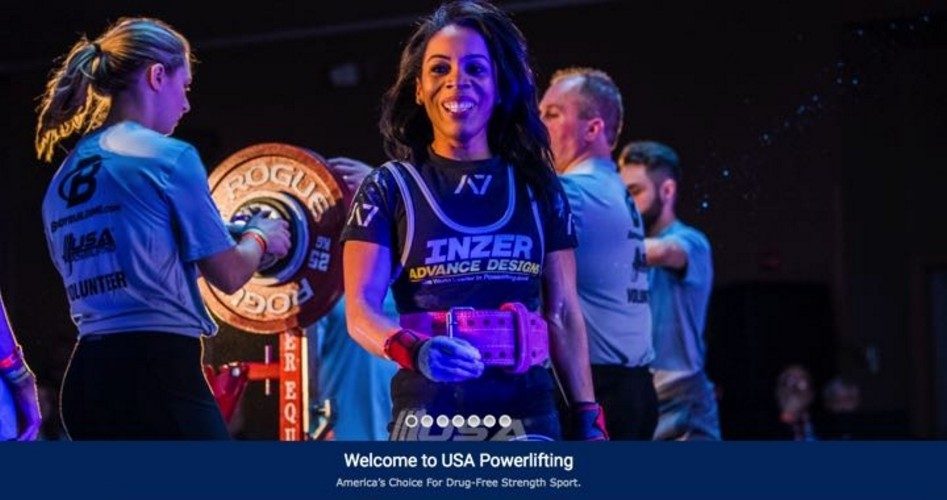
USA Powerlifting (USAPL), an organization that sponsors powerlifting events across the United States, is facing allegations of discrimination because of its policy that biological males are not allowed to compete against biological females in the sport. USAPL is preparing to defend itself against the accusation that it discriminates against so-called trans athletes.
Minnesota-based Gender Justice, a trans-gender advocacy group announced that it has filed a complaint with the Minnesota Department of Human Rights on behalf of JayCee Cooper, a biologically male trans-athlete who was not allowed to compete in the women’s division of the state’s bench press championship, which was held in January.
Gender Justice accuses USAPL of violating the Minnesota Human Rights Act, specifically a 1993 addendum that they claim allows transgendered athletes with XY chromosomes to compete on a level playing field with female athletes with XX chromosomes.
“There are many threats to women’s sports, but equality and inclusion are not among them,” said Gender Justice Legal Director Jess Braverman. “Like other female athletes, JayCee is facing policies rooted in bias, fear and unfounded stereotypes. We believe USA Powerlifting’s over-the-top blanket ban on transgender women athletes is clear discrimination under Minnesota law, and we will fight for JayCee’s opportunity to compete.”
To compete unfairly according to the USAPL (and biology). Males who “transition” to females retain their chromosomes and much of their bone density. USAPL believes that it is defending the integrity of women’s athletics by not allowing biological males to compete against biological females. “To allow those born and who went through puberty as males to compete as females would be inherently discriminatory to against a federally protected class: women,” said USAPL president Larry Maile.
USAPL even commissioned a panel of experts to determine whether its ban on “transgender women” competing against biological females was scientifically valid. Conclusion: The science backs USAPL.
“At some point, we’re going to have to defend the biology and stand on women being a protected class, and it may as well start in Minnesota,” Maile told the Daily Caller.
USAPL responded to the discrimination allegation in June 17 press release which stated: “There is reportedly a filing under the Minnesota Human Rights Act alleging discrimination on the part of USA Powerlifting with regard to not allowing transgender females to compete in the women’s competitive division. USA Powerlifting has not seen this filing, although objects to the characterization of these allegations as charges. No criminal complaint has been authored or issued, and this mischaracterization represents the language of bullying and abuse and has been directed at USA Powerlifting, its officials and members.”
Cooper, who has co-founded Pull for Pride, an advocacy group looking to assist homeless LGBTQ youths, attempted to lobby USAPL to change its rules in May, during the organization’s annual meeting. Cooper’s proposed new rule allowing “trans-women” to compete with biological females was denied by a 46-4 vote.
Cooper, who was the subject of a sycophantic piece by NBC News in April believes it to be “unfair” that a biological male is not allowed to compete with women in sporting events. “It’s not fair to genetically eliminate an entire group of people,” Cooper told NBC, though the large percentage of unathletic Americans who have never been able to compete in sports might disagree with his claim.
For the record, USAPL does allow trans-athletes to compete in its events. The only restriction is that they must compete in their own chromosomal group. JayCee would be entirely welcome to compete in his (her?) chromosomal group, which is XY or male.
Female athletes are becoming increasingly upset over the decisions by many athletic organizations to allow biological males, who have or are in the process of transitioning to female, to compete in female events. Whether it’s Cooper’s attempt to dominate female powerlifting or Connecticut high-school girls being unfairly paired against biologically male athletes in track, the PC culture has gotten out of hand when it accepts this type of unfairness.
And women are the ultimate victims of this nonsense.
Consider MMA fighter Fallon Fox, a post-surgical transgendered “woman” competing as a woman. In 2014, Fox, a biological male, competed against female fighter Tamikka Brents, breaking Brents’ skull during the fight. Fox, allegedly a wrestler, showed no discernable technique during the fight — only brute force.
In a post-fight interview, Brents said: “I’ve fought a lot of women and I have never felt the strength that I felt in a fight as I did that night. I can’t answer whether it’s because she was born a man or not because I’m not a doctor. I can only say I’ve never felt so overpowered ever in my life and I’m an abnormally strong female in my own right…. I still disagree with Fox fighting. Any other job or career I say have a go at it, but when it comes to combat sport, I think it just isn’t fair.”



